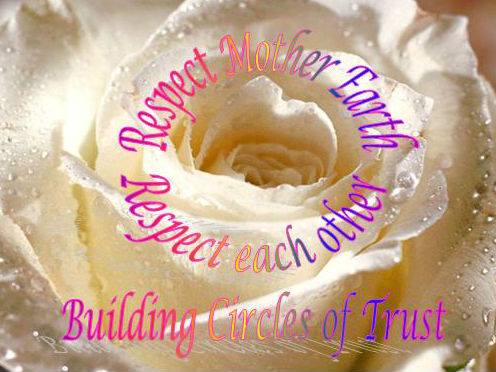Being Non-Judgmental
Living in the Now Newsletter
April 27, 2024
When Neetopk Keetopk was formally organized in the spring of 2014, following the celebration of the Two Row Wampum Treaty of 1613, it adopted 7 ideals.1
One was to be and act non-judgmentally.
We are nonjudgmental by suspending judgment of our own experiences and those of others as we are processing, i.e., we do not judge the value of the experience while it is occuring. We may look at whether we are comfortable or not. We may discern what lessons are available to us. We may assess how such happenings affect our energy. Some may say these are judgments. However, what we are not judging is the worth of the people involved, including self, as these happenings are experienced. Having a not so good experience does not make a person more or less valuable, more or less worthy.
We are all made in the image of the Creator. Our innate worth is not dependent on circumstances or actions. The actions we take are important in determining whether we are following our path in a good or not so good manner, whether we gain or lose.
What do we gain or lose? Energy levels, the energy levels we exist at, live at. And this varies each day. We frequently gain and lose for life is all about choices.
Being nonjudgmental means we judge no one because they have done a certain act or have certain traits. It is all experience which gives us opportunities to choose specific actions. We then decide if the results of these actions are good or not so good and whether or not we wish to repeat them.
Consider this example:
A person is diagnosed with a medical condition such as cancer. They consider their options and make a few choices, choose a specific path of treatment. This path provides certain experiences.
One is the opportunity to make judgments. Why a person is having the experience is one area. What has the person done wrong to have this experience? Maybe nothing.
Another is why has the person chosen this path? "It won't work." How is this known by the observers?
Questions are natural but answering them with judgments is not very useful. Facts are needed.
There are many other opportunities to form judgments, i.e., jump to conclusions. whether the situation is happening to self or to someone else. Such thoughts/judgments may be of little use to anyone.
The main reason we have certain experiences is because we choose them [pre-birth] so we may see what happens, what it feels like, what our choices are in facing a particular situation. They are learning experiences, so that we may evaluate the results. However, there is no value in judging the individual based on choices made in these instances. The only thing to be judged is whether the results are good or not so good as to influence the path chosen next time.
The current meaning of judgmental is too quick to form an opinion. This can be taken further to mean to form opinions about others, such as their motivation. We do not know why one chooses a path and what has been learned unless they also choose to share this information.
Our choice.
1 The seven Neetopk Keetopk ideals are:
cooperation; respect; equality; sharing; sovereignty; non-hierarchal; non-judgmental
Wanisi do
To see to directory for LITN newsletters for 2021-2023,
click on page 2021-23 NL
To see directory for LITN newsletters for 2018-2020,
click on page 2018-20 NL
To see directory for LITN newsletters for 2024-2025,
click on page 2024-25 NL
Contact: neetopkkeetopk@pm.me (Etaoqua)

Love Banishes Fear!
cooperation respect equality sharing sovereignty
non-hierarchal non-judgmental
neetopkkeetopk.org
Copyright etaoqua 2024 © All rights reserved.
Do You Know? ...
We are here to experience